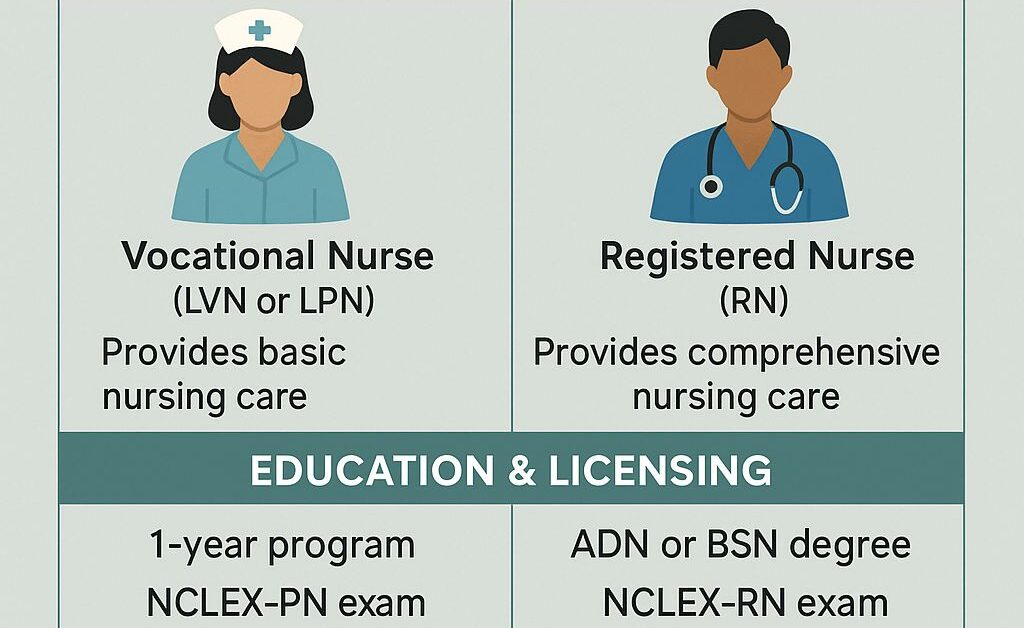One of the most important documents for small businesses is the SMEDAN Certificate. Starting a business in Nigeria requires proper registration and certification to ensure legal compliance and access to business opportunities.
If you’re wondering how to get one, this guide will take you through everything you need to know—step by step.
I have seen many entrepreneurs being confused about whether to register with the Corporate Affairs Commission (CAC) or the Small and Medium Enterprises Development Agency of Nigeria (SMEDAN) first.
It is advisable that you register your business with CAC before applying for a SMEDAN Certificate. This articles will also explains why CAC registration is essential, the benefits it provides, and how it sets the foundation for leveraging SMEDAN’s support for your business.
What is a SMEDAN Certificate?
The SMEDAN Certificate is an official document issued by the Small and Medium Enterprises Development Agency of Nigeria (SMEDAN). It serves as proof that your business is registered under SMEDAN, giving you access to government grants, loans, business training, and other benefits designed to support small and medium enterprises (SMEs).
If you’re running a small business and want to be recognized by the government, obtaining this certificate is a must.
Why Do You Need a SMEDAN Certificate?
Registering for a SMEDAN Certificate is more than just getting a document—it comes with multiple benefits:
- Access to Government Grants and Loans – Many government funding programs require a SMEDAN registration.
- Business Recognition and Credibility – Being listed in the SMEDAN database boosts your business’s legitimacy.
- Training and Capacity Building – SMEDAN offers business training and mentorship for registered members.
- Tax Incentives and Business Support – Registered businesses may qualify for tax reliefs and other incentives.
Differences Between CAC and SMEDAN
The Corporate Affairs Commission (CAC) and the Small and Medium Enterprises Development Agency of Nigeria (SMEDAN) are two government agencies that serve different roles in supporting businesses in Nigeria. Below is a detailed comparison of their functions, registration processes, and benefits.
1. Purpose and Function
- CAC: The Corporate Affairs Commission is responsible for the legal registration of businesses in Nigeria. It ensures that companies comply with corporate regulations and have official legal status.
- SMEDAN: The Small and Medium Enterprises Development Agency of Nigeria focuses on supporting and promoting SMEs through funding opportunities, training, capacity building, and networking programs.
2. Type of Registration
- CAC: Registers businesses as:
- Business Names
- Private Limited Companies (Ltd)
- Public Limited Companies (PLC)
- Non-Governmental Organizations (NGOs)
- Other recognized legal entities
- SMEDAN: Issues a unique identification number and SMEDAN Certificate to small businesses but does not provide legal status.
3. Legal Recognition
- CAC: A CAC-registered business is legally recognized as an entity that can:
- Enter contracts
- Own properties
- Sue or be sued
- SMEDAN: A SMEDAN Certificate provides government recognition but does not replace CAC registration or grant legal status.
4. Requirement for Business Operations
- CAC: Mandatory for:
- Opening a corporate bank account
- Bidding for government and private contracts
- Operating legally as a business in Nigeria
- SMEDAN: Not compulsory but beneficial for accessing:
- Government grants
- Low-interest loans
- Training and mentorship programs
5. Registration Process
- CAC:
- Choose a business name
- Submit required documents (e.g., Memorandum and Articles of Association for companies)
- Pay the registration fee
- Receive a Certificate of Incorporation or Business Name Registration Certificate
- SMEDAN:
- Simple online registration at www.smedan.gov.ng
- Provide basic business details
- Registration is free, and a SMEDAN Certificate is issued instantly
6. Benefits
- CAC:
- Gives businesses legal backing
- Enhances credibility and trust among customers and investors
- Allows businesses to apply for a Tax Identification Number (TIN)
- Enables access to bank loans and investment opportunities
- SMEDAN:
- Provides access to government grants and funding programs
- Offers training and mentorship to improve business skills
- Connects businesses to networking opportunities and markets
7. Cost of Registration
- CAC: Requires payment of registration fees, which vary depending on the business structure.
- SMEDAN: Completely free to register.
8. Verification and Renewals
- CAC:
- Business details can be verified on the CAC portal
- Businesses must comply with annual returns and regulatory filings
- SMEDAN:
- SMEDAN Certificates can be verified on the SMEDAN website
- No renewal required
Why You Should Register Your Business With CAC Before SMEDAN?
1. CAC Registration is Mandatory
The Corporate Affairs Commission (CAC) is the official government body responsible for registering and regulating businesses in Nigeria. Without CAC registration, your business lacks legal standing and cannot fully operate in the formal economy.
2. SMEDAN Registration is Optional but Beneficial
SMEDAN provides support, funding opportunities, and training for Micro, Small, and Medium Enterprises (MSMEs). However, most of its benefits are only available to businesses already registered with CAC.
3. CAC Registration Grants Legal Recognition
While SMEDAN registration offers valuable business development opportunities, it does not provide legal status. Only CAC registration makes your business an officially recognized entity under Nigerian law.
See Also: Top 20 Best Hand work in Nigeria
Benefits of Registering Your Business With CAC
1. Legal Recognition
Registering with CAC legally establishes your business, making it a recognized entity in Nigeria.
2. Access to Banking Services
A CAC-registered business can open a corporate bank account, which is essential for handling financial transactions professionally.
3. Eligibility for Government Contracts and Investments
Many organizations, including government agencies and investors, only work with registered businesses.
4. Protection of Your Business Name
CAC registration ensures that no other entity can legally use your business name, protecting your brand identity.
5. Compliance with Tax Requirements
A registered business can obtain a Tax Identification Number (TIN), which is necessary for fulfilling tax obligations.
Step-by-Step Guide to Registering Your Business With CAC
Step 1: Choose Your Business Structure
Select the most suitable legal structure for your business:
- Business Name (Sole Proprietorship or Partnership)
- Limited Liability Company (LLC)
- Incorporated Trustees (For NGOs, Religious Organizations, and Associations)
Step 2: Check Business Name Availability
Visit the CAC portal to search for your preferred business name. If available, reserve it to prevent others from using it.
Step 3: Prepare the Required Documents
You will need:
- A valid form of identification (National ID, International Passport, or Driver’s License)
- Completed CAC registration forms
- Passport photographs of proprietors or directors
- A statement of share capital (for companies)
Step 4: Submit Your Application Online
- Visit the CAC registration portal
- Create an account, fill out the forms, and upload your documents
- If you’re unsure how to complete the process, professional registration services can assist you
Step 5: Pay the Registration Fees
Complete the payment process for your selected business structure.
Step 6: Obtain Your CAC Certificate
Once your application is approved, you will receive your Certificate of Incorporation or Business Name Registration Certificate.
See Also: CAC Verify: How to Verify a CAC Certificate Online in Nigeria
What is SMEDAN Registration and Why is it Important?
The Small and Medium Enterprises Development Agency of Nigeria (SMEDAN) is a government agency that supports small businesses by providing access to funding, training, and networking opportunities.
Benefits of SMEDAN Registration
- Access to Funding: Grants, low-interest loans, and financial support for SMEs.
- Business Development Programs: Training, mentorship, and capacity-building workshops.
- Networking Opportunities: Connect with suppliers, partners, and investors.
- Market Visibility: Your business is included in the SMEDAN MSME database, increasing credibility and exposure.
How to Get a SMEDAN Certificate (Step-by-Step Guide)

Getting a SMEDAN Certificate is free and can be done online in just a few steps. Follow this guide carefully:
Step 1: Visit the SMEDAN Registration Portal
Go to the official SMEDAN portal at https://portal.smedan.gov.ng/signup. This is where you’ll begin the registration process.
Step 2: Create an Account
Opening an account by filling in the space provided: your name, email, and password, then click on the “Register” button. This will take you to the registration form.
Step 3: Fill in Your Business Details
You’ll be required to provide the following information:
- Business name
- Business type (e.g., sole proprietorship, partnership, or limited liability company)
- Business sector (e.g., agriculture, retail, manufacturing, etc.)
- Business location and address
- Email and phone number
Step 4: Provide Your Personal Details
As the business owner, you must enter your:
- Full name
- Date of birth
- Identification details (National ID, Voter’s Card, or International Passport)
Step 5: Submit Your Application
Once you’ve completed the form, double-check all the information and click Submit.
Step 6: Receive Your SMEDAN Certificate
After submitting your application, you will receive a SMEDAN Unique Identification Number (SUIN) immediately. Your SMEDAN Certificate will also be available for download in PDF format.
Tip: Save and print your certificate as you may need it for loan applications and business support programs.
Eligibility Criteria for an SMEDAN Certificate
To qualify for an SMEDAN Certificate, your business must meet the following requirements:
1. Nigerian-Owned Business
- The business must be owned by a Nigerian citizen.
2. Small or Medium-Scale Enterprise
- The business should fall under the Micro, Small, and Medium Enterprises (MSME) category.
- It must have a turnover of not more than ₦100 million per year.
- It should employ at least 300 people or fewer.
3. CAC Registration
- The business must be duly registered with the Corporate Affairs Commission (CAC).
- It must have a valid Business Name or Limited Liability Company (LLC) registration.
4. Tax Identification Number (TIN)
- The business must have a valid Tax Identification Number (TIN) issued by the Federal Inland Revenue Service (FIRS).
Meeting these criteria ensures that your business is eligible for SMEDAN registration, allowing you to access funding, training, and other government support programs.
Why SMEDAN Registration Comes After CAC
1. SMEDAN Requires CAC Registration
Many of the benefits provided by SMEDAN, including funding and business support, require proof of CAC registration.
2. CAC Registration Grants Legal Standing
Without CAC certification, your business lacks the legal recognition required to operate formally, making it harder to access SMEDAN benefits.
How to Combine CAC and SMEDAN Registration for Business Growth
Step 1: Register Your Business with CAC
Start by securing your Certificate of Incorporation or Business Name Registration Certificate through CAC.
Step 2: Register with SMEDAN
Once your CAC registration is complete, visit the SMEDAN portal and register your business.
Step 3: Leverage Both Registrations
- Use your CAC registration to access loans, government contracts, and formal business recognition.
- Utilize SMEDAN resources for grants, training, and business development.
Common Mistakes to Avoid
1. Skipping CAC Registration
Registering with SMEDAN without CAC certification limits your business’s legal and financial opportunities.
2. Using an Unregistered Business Name
Failure to reserve your business name with CAC may lead to legal disputes or brand identity issues.
3. Ignoring Tax Compliance
Ensure you obtain a Tax Identification Number (TIN) after CAC registration to avoid legal penalties.
Conclusion
Registering your business in the right order is crucial for long-term success. CAC registration is the first and most important step to establishing a legal business in Nigeria. Once registered, SMEDAN registration can provide additional support to help your business grow.
By following the correct sequence—CAC first, SMEDAN second—you position your business for credibility, financial support, and sustainable growth.
Need Help With CAC Registration?
Our team of experts can handle the entire CAC registration process for you. Contact us today for seamless business registration!
Ready to Register Your Business With CAC And SMEDAN?
Contact Us and start your registration process now.







1 thought on “SMEDAN Certificate Registration Guide 2025”